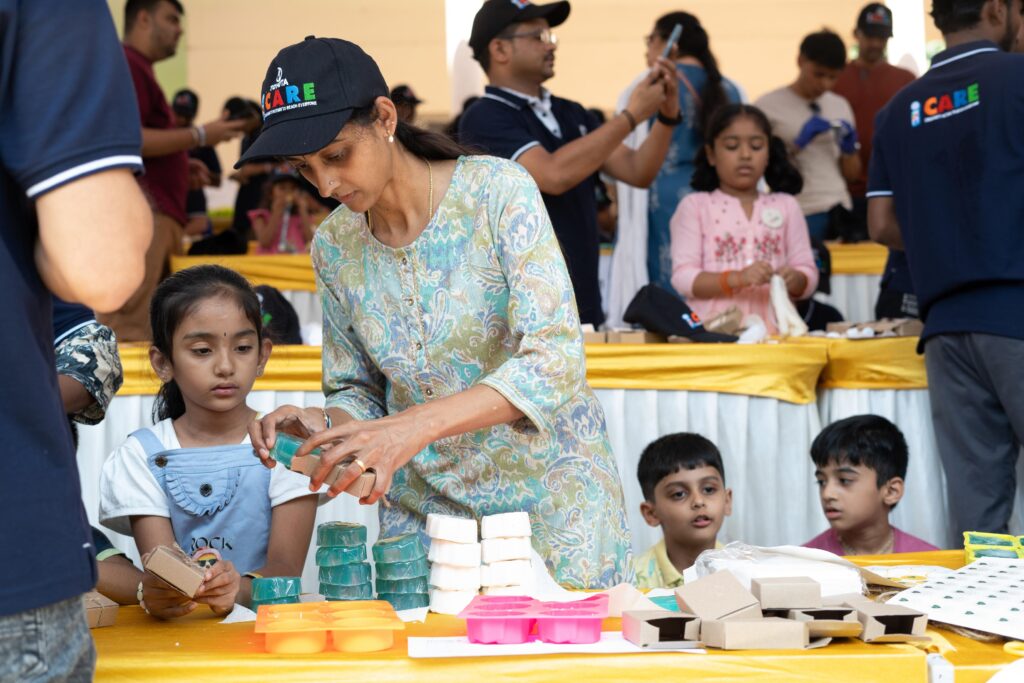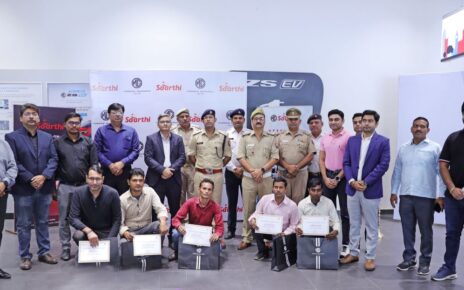Toyota Kirloskar Motor (TKM) has successfully completed the 34th edition of its employee volunteerism initiative, iCARE (i, Community Action to Reach Everyone), reaffirming its commitment to community development and sustainability. Held at NSS Bhavan, Bangalore University, the activity focused on empowering rural women entrepreneurs and promoting eco-friendly livelihoods through hands-on engagement and skill-based support.

The event saw enthusiastic participation from over 250 iCARE volunteers, including TKM employees and their families, who came together to produce 1,000 eco-friendly natural soaps. These soaps will directly benefit Self Help Groups (SHGs) engaged in small-scale production, helping them strengthen inventory and scale up their micro-enterprises.
As part of the initiative, TKM also provided sustainable moulds, packaging materials, soap-making tools, and vessels to facilitate continued production. This support will help SHGs such as Sreelakshmi Swasahaya Sanga and Basaveshwara Swami Mahila Swasahaya Sanga in Ramanagara district expand their businesses to neighbouring villages and boost rural entrepreneurship.
Commenting on the initiative, Mr. Sudeep Dalvi, Chief Communication Officer, Senior Vice President, and Head – State Affairs, Toyota Kirloskar Motor, said, “Through its 34th iCARE initiative, TKM continues to uphold Toyota’s philosophy of giving back to society by empowering communities through meaningful and sustainable actions. By supporting rural women micro-entrepreneurs, we aim to create inclusive economic opportunities and promote environmentally friendly practices that contribute to our vision of ‘Grow India – Sustain India.’”
In line with Toyota’s Kaizen and DEI principles, TKM volunteers shared technical know-how and process improvement insights to help SHGs enhance production efficiency and maintain quality consistency. The initiative not only boosted productivity but also equipped participants with practical skills for sustainable growth and market expansion.
Aligned with national priorities such as Viksit Bharat 2047, Skill India, and women’s empowerment through rural entrepreneurship, this effort reinforces TKM’s role in driving inclusive growth and self-reliant communities.
Through its six CSR pillars—Education, Health & Hygiene, Environment, Skill Development, Road Safety, and Disaster Management—TKM continues to make measurable social impact, blending innovation, compassion, and sustainability to uplift communities across India.




